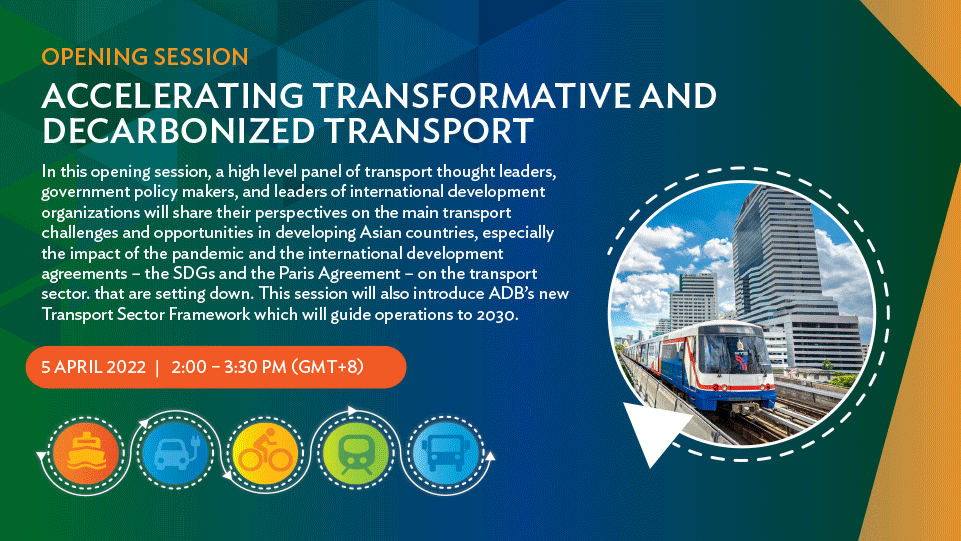|

Background
The past two years since the previous Asia and the Pacific Transport Forum have seen an unprecedented change in how the globe understands transport and human mobility. The impact of the COVID-19 pandemic which began in 2020 caused a seismic shift in transport systems, and while recovery is underway, the impact is still being felt now and will be felt far into the future. The length and complexity of the pandemic has forced changes in public transport, in private mobility choices, and it has caused a re-examination of what were considered set knowledge in the transport sector.
Even during the timeline of the pandemic itself, transport choices have changed as countries adapted within their capabilities and unique situations. Yet other aspects of transport, such as international aviation, and logistics are still struggling.
Though spotty and often interrupted by a resurgent virus – the recovery from the pandemic is well underway. Many governments have stated their desire to “build forward better,” and the Asian Development Bank is ready to support this throughout its operations in transport.
There are necessities that need to be met, but also new opportunities for transport – in terms of human mobility, urban planning, the strengthening of logistics and integration across borders. Many of the best lessons of the pandemic – the adaptability and innovation that arose during those trying times – can be brought forward, and contribute to the acceleration of the development of sustainable and decarbonized transport in Asia and the Pacific region.
For the second time in the pandemic era, ADB is hosting the Asia and the Pacific Transport Forum to discuss how transport will work in a changed world.
From 5 to 7 April 2022, ADB will be hosting a series of special webinars and dedicated, online sessions to bring together the expert community and discuss the acceleration of change in transport and mobility.
The Asia and the Pacific Transport Forum serves as the premiere gathering of experts, government counterparts, and stakeholders in Asia and the Pacific to discuss the region's transport issues, the applied and potential solutions to these issues, and the future of the sector. It’s first iteration in 2020 was one of the most well attended events in ADB’s records, and served as an example of how virtual events could be successful. The organizers aim for the 2022 Forum to meet and exceed its previous successes.
Objectives
- Provide an opportunity for representatives of the Asian transport expert community to develop a greater understanding on key transport issues in the present and near future: changes in urban transport, building resilience to future crises in transport, and environmental aspects to transport, especially in light of the Paris Agreement and alignment to its climate change targets.
- Allow those working on real-world sustainable transport solutions such as policy makers, thought leaders, and practitioners working in the transport sector to discuss their experiences in shaping the transport sector in this time of mixed recovery and uncertainty.
- Engage discussions between ADB and its developing member countries and partners on the challenges and opportunities facing the transport sector, and what “build forward better” will look like implemented across the region.
Target Participants
- Key decision makers of governmental urban transport organizations
- Infrastructure / asset managers of urban transport systems
- Urban transport sector specialists, focused on technical or policy issues
- Policy makers, regulators, and managers from the public and private sectors
- Representatives and experts in urban transport related technologies
- Development and knowledge partners working on urban transport issues
|
|
|


  
|
|
|